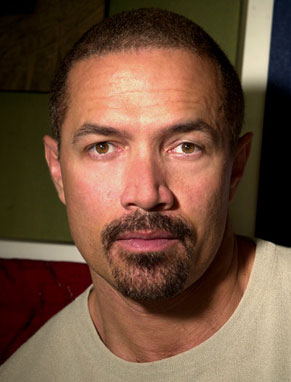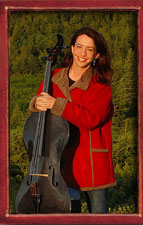 The rabid right has worked itself into a state over Ken Burns’ extraordinarily fair, balanced and altogether pro-American documentary series, The War. Partly it’s the fact that it is on PBS and it it is an article of faith among conservatives that PBS is run by a bunch of commie, pinko surrender monkeys who use taxpayer dollars to grind out streams of anti-American propaganda. Forget the fact that most of money comes from such dubious sources as General Motors, Anheiser-Busch, Bank of America and generous foundations established by thoughtful capitalists of the past. Keep those kids away from PBS; they might see a gay cartoon character.
The rabid right has worked itself into a state over Ken Burns’ extraordinarily fair, balanced and altogether pro-American documentary series, The War. Partly it’s the fact that it is on PBS and it it is an article of faith among conservatives that PBS is run by a bunch of commie, pinko surrender monkeys who use taxpayer dollars to grind out streams of anti-American propaganda. Forget the fact that most of money comes from such dubious sources as General Motors, Anheiser-Busch, Bank of America and generous foundations established by thoughtful capitalists of the past. Keep those kids away from PBS; they might see a gay cartoon character.
Another part of the problem is that Burns himself has said he wasn’t making a celebratory documentary and that he took care to frame his subject (in the words of one veteran) as a “necessary” war, not a “good” war. This infuriates the true belivers to whom war, any war that America gets involved in, is a good war simply because we’re in it. Saying anything to contrary is like, well, suggesting that Ronald Reagan was human-born and put his pants on one-leg at a time.
On the lack of celebratory zeal front, the most curious offering came from Dorothy Rabinowitz in the Wall Street Journal who was particularly offended by the downbeat original music created for the series by Wynton Marsalis:
The dolorous jazz arrangements by Wynton Marsalis that run throughout the film were, the credits tell us, created especially for this production. Who would doubt it? Don’t ask about the background music for D-Day. Moving on, we see the archival footage of U.S. soldiers advancing through German streets — it is 1945, the troops are among the first Americans to have made it across the Rhine, and victory is, if not in sight, close at hand. By way of an accompaniment to this moment, we hear on the soundtrack some faintly mournful twitterings.
I’m not a huge fan of Marsalis as a composer and I think Burns overused him in his previous jazz films but it seems to me that in this case his restrained, thoughtful, unobtrusive musical texture is a perfect fit for the intimate, personal and very emotional stories the subjects are telling. When Burns moves away from the personal to the sweep of history view he inevitably turns to familiar tunes by Artie Shaw or Glenn Miller or other period music that serve as a kind of shorthand for the American experience of the World War II. And, Burns best efforts notwithstanding, that music is always sad, nostalgic, and, yes, celebratory for those of us whose lives touched the war.
Rabinowitz has some particularly nasty words of America’s current queen of pop: “When it comes to the dolorous, to be sure, there’s nothing quite equal to the effect of the dreadful “American Anthem” (1999, sung here by Norah Jones), whose sodden notes sound at regular intervals.” True, the song is sappy but then so was “I’ll See You in My Dreams” and Alice Faye. Sometimes, sappy is right.
The War is an incredible tribute to the Americans who lived through it and to those who fought and died. By focusing on the little stories that were epic to those who lived them, the film touches the heart in ways that banal glorification can’t. Inevitably, it celebrates the resilience of the American character, even if it’s trying not to.
This is a case of people listening to what Burns said he was doing and not watching what he has actually done.
 The Metropolis Ensemble is getting set to record the complete collection of chamber orchestra concerti of Avner Dorman with producer David Frost but you don’t have to wait to hear it; the best little orchestra in New York will be performing the same repertoire live and in color next Thursday night, October 11, at the Angel Orensanz Foundation Center for the Arts (172 Norfolk St, between Houston and Delancey), commencing at 8 pm. On tap are the American premieres of Dorman’s Concerto in A and Concerto Grosso, the New York premiere of Piccolo Concerto, and an encore performance of Mandolin Concerto. Soloists Mindy Kaufman of the New York Philharmonic, Avi Avital, and Eliran Avni will join the Metropolis Ensemble led by conductor Andrew Cyr. If you haven’t heard the Metropolis in action you’ve missed something pretty special. These cats seriously cook. (Just showing my age for a moment.)
The Metropolis Ensemble is getting set to record the complete collection of chamber orchestra concerti of Avner Dorman with producer David Frost but you don’t have to wait to hear it; the best little orchestra in New York will be performing the same repertoire live and in color next Thursday night, October 11, at the Angel Orensanz Foundation Center for the Arts (172 Norfolk St, between Houston and Delancey), commencing at 8 pm. On tap are the American premieres of Dorman’s Concerto in A and Concerto Grosso, the New York premiere of Piccolo Concerto, and an encore performance of Mandolin Concerto. Soloists Mindy Kaufman of the New York Philharmonic, Avi Avital, and Eliran Avni will join the Metropolis Ensemble led by conductor Andrew Cyr. If you haven’t heard the Metropolis in action you’ve missed something pretty special. These cats seriously cook. (Just showing my age for a moment.) Philip Glass is not the only composer who turned 70 this year. Among other newly-minted septuagenarians is David Del Tredici, a “maverick” composer in the great American tradition, and while his attainment of elder statesman status has attracted much less fuss than Glass and Steve Reich, there have been some small, quiet celebrations, one of which was reviewed in the NYT this morning by
Philip Glass is not the only composer who turned 70 this year. Among other newly-minted septuagenarians is David Del Tredici, a “maverick” composer in the great American tradition, and while his attainment of elder statesman status has attracted much less fuss than Glass and Steve Reich, there have been some small, quiet celebrations, one of which was reviewed in the NYT this morning by  The rabid right has worked itself into a state over Ken Burns’ extraordinarily fair, balanced and altogether pro-American documentary series, The War. Partly it’s the fact that it is on PBS and it it is an article of faith among conservatives that PBS is run by a bunch of commie, pinko surrender monkeys who use taxpayer dollars to grind out streams of anti-American propaganda. Forget the fact that most of money comes from such dubious sources as General Motors, Anheiser-Busch, Bank of America and generous foundations established by thoughtful capitalists of the past. Keep those kids away from PBS; they might see a gay cartoon character.
The rabid right has worked itself into a state over Ken Burns’ extraordinarily fair, balanced and altogether pro-American documentary series, The War. Partly it’s the fact that it is on PBS and it it is an article of faith among conservatives that PBS is run by a bunch of commie, pinko surrender monkeys who use taxpayer dollars to grind out streams of anti-American propaganda. Forget the fact that most of money comes from such dubious sources as General Motors, Anheiser-Busch, Bank of America and generous foundations established by thoughtful capitalists of the past. Keep those kids away from PBS; they might see a gay cartoon character.  Alas, no composers among the
Alas, no composers among the  “Music should either touch your soul or make you dance,” Michael Abels says, and though he admits there is a lot of music out there that doesn’t do either, those should be the goals. “I always ask my students ‘what is the purpose of your music?’ You can’t create it unless you know what you want it to do.”
“Music should either touch your soul or make you dance,” Michael Abels says, and though he admits there is a lot of music out there that doesn’t do either, those should be the goals. “I always ask my students ‘what is the purpose of your music?’ You can’t create it unless you know what you want it to do.”
 Review in yesterday’s NYT of a novel called
Review in yesterday’s NYT of a novel called